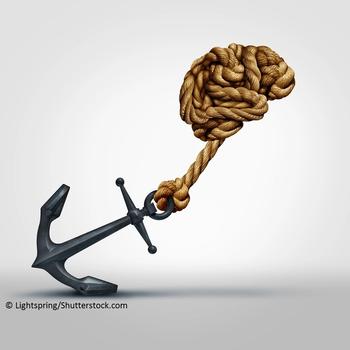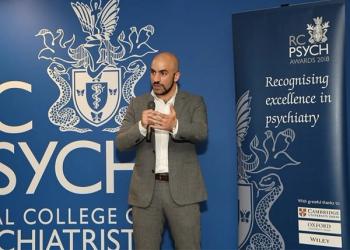
When people turn to mental health professionals about sexual problems-cyber or otherwise-how comfortable and informed are we?

When people turn to mental health professionals about sexual problems-cyber or otherwise-how comfortable and informed are we?

Adolescents explore their sexuality. In most cases, this exploration is normative. At times, however, compulsive sexual behavior is developed and maintained.

Transgender adolescents and their families experience barriers to care and specialized providers might not always be available. However, the work with transgender adolescents can be rewarding.

To improve access to and quality of mental health care for individuals who identify as LGBTQ, it is important for clinicians to become allies to this marginalized community.

The rise of the Internet and smart phones has created a proliferation of “sexting” between adults and, even more concerning, youths.

The author shares conclusions about what prompts some veteran suicides, drawn from published war accounts and memoirs and his own clinical experience.

Three studies highlight how important it is that when physicians prescribe opioids there can be significant and even potentially fatal consequences for the family members of those for whom they are being prescribed.

"Psychiatry has been frozen in time since the 80s, and hence the absence of progress since then is no surprise." So says, S. Nassir Ghaemi, MD, MPH, in the next installment of Conversations in Critical Psychiatry with Awais Aftab, MD.

Agitation can worsen function, pose safety concerns, and increase caregiver stress. It can be both confusing and frustrating to understand and manage these behaviors, but there are several approaches that can make all the difference.

Men face many obstacles in disclosing sexual abuse and assault histories to their clinicians and the public at large. More in this video.

This CME activity provides an understanding of problematic pornography use and how it relates to compulsive sexual behavior disorder.

Our daughter’s first day of Med School ten years ago, computer charged, a career choice . . .

What to expect in the December issue.

In our role as clinicians, we participate in the practice of medicine because there is always more to learn, and more experience to be gained. Such is the case with mindfulness...

Can kindness help determine who gets sick and who stays healthy?

Psychiatric Times begins a new series: “Looking Back to Look Forward: This Month in Psychiatry.” Contributors from across the globe will take the opportunity to point out both notable and neglected figures, topics, and developments in the history of psychiatry.

Maternal viral infection during pregnancy is a risk factor for schizophrenia. But there has been relatively less research on the association between maternal bacterial infection during pregnancy and psychosis risk.

Johan Verhulst, MD, left this world exactly as he lived-with grace, honor, integrity, humor, love, humility, intellect, and a continuing interest in our ongoing professional conversations.

Patients with a family history of Alzheimer disease worry that normal aging symptoms are the initial indication of a progressive cognitive impairment that they have observed in their relatives. A variety of interventions are discussed.

The most frequently researched aspect of the relationship between BPD and bipolar disorder has been the frequency of their co-occurrence. Several reviews have estimated a 20% overlap in diagnostic frequency.

From homeless man with mental illness to the Royal College of Psychiatrists-the journey was not easy, but few things worthwhile are.

In this Special Report we offer articles that address the interplay of psychiatric and infectious disease.

Ongoing research has identified multiple infectious diseases that may play a role in the development of neuropsychiatric disorders, particularly in people predisposed to genetic and environmental factors.

Nearly all antibiotic agents have been associated with CNS effects. Although uncommon, these events can be severe.

It is crucial for practicing psychiatrists to consider that Alzheimer disease can be aggravated by infections of different origin.

From addressing borderline personality disorder to preventing drug-drug interactions and more, Psych Congress faculty shared useful diagnostic and treatment information.

The good, the bad, and the efficacy of lamotrigine.

Recognizing treatment resistance early can raise the response rate from 30% to 80% in difficult-to-treat cases. in this video, Jonathan Meyer, MD, shares his top strategies to manage it with Chris Aiken, MD.

In short, Epstein’s story was media catnip. Unfortunately, lost in all the sensational coverage of this one man was the systematic mistreatment of people with serious mental illness in the criminal justice system.

In November 2018, the National Rifle Association (NRA) taunted physicians by tweeting, “Someone should tell self-important anti-gun doctors to stay in their lane.” In response, physicians, including psychiatrists, insisted that firearm death, suicide, injury, and trauma are indeed our lane.